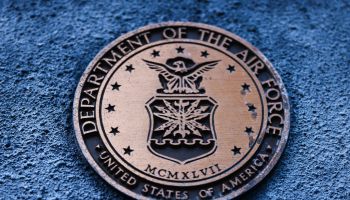Members of the nation’s oldest black sorority are alleging more financial misdeeds by their president, who is already accused of spending hundreds of thousands of dollars of the group’s money on questionable expenses, including a wax statue of herself.
Eight members of Alpha Kappa Alpha filed a lawsuit in D.C. Superior Court in June seeking to remove international president Barbara McKinzie.
Now they say she received nearly $500,000 in questionable payments from the Chicago-based sorority over six weeks this summer, starting June 19, the day before the lawsuit was filed.
The lawsuit says McKinzie spent hundreds of thousands of dollars in AKA money on herself, some of it to pay for the statue to be displayed in the National Great Blacks in Wax Museum in Baltimore.
It also alleges that McKinzie bought designer clothing, jewelry and lingerie with the sorority credit card, then redeemed points the purchases earned on the card to buy a big-screen television and gym equipment.
The lawsuit questions the legitimacy of $375,000 in compensation that McKinzie received in 2007, saying it was never approved by members. Past AKA presidents have received only small stipends, said Edward W. Gray Jr., an attorney for the sorority members who are suing.
The latest allegations stem from copies of checks that Gray said were sent to the plaintiffs anonymously. The checks, for a total of $499,699, are made out to McKinzie by the sorority. The copies have been posted on a Web site the plaintiffs set up.
Gray said it’s unclear who, if anyone, approved the payments. Ledger entries accompanying them indicate they are for “retirement.”
“There’s a veil of secrecy over their financial activities even though all of their financing comes from member support,” Gray said.
The sorority engages in a variety of charitable and service projects, and according to the lawsuit most of its revenue comes from member dues and registration fees for membership meetings.
In a letter to sorority lawyers last week, Gray emphasized that he could not vouch for the checks’ authenticity, but demanded that any such payments stop.
Asked whether the checks were genuine, AKA spokeswoman Melody M. McDowell said the sorority would have no comment beyond a letter from AKA lawyer Charles G. Albert. McKinzie has denied the claims in the lawsuit, calling them “malicious allegations.” A message seeking comment was left Tuesday at a home number listed for her.
In the letter, Albert referred to the check copies sent to Gray’s clients as “the wrongful disclosure of what appears to be the confidential financial information of the Sorority.”
“AKA is a multimillion-dollar business, and will continue to conduct its daily business consistent with its policies and procedures, and all applicable laws and rules,” Albert wrote to Gray. “Neither you nor the eight plaintiffs in this case can prevent the Sorority from conducting its business.”
AKA was founded in 1908 at Howard University in Washington and boasts a worldwide membership of 250,000 women, including prominent black businesswomen and such luminaries as author Toni Morrison. Alpha Kappa Alpha has nearly 56,000 active members, about 10 percent of them undergraduates.
Related
AKA President Allegedly Uses Sorority Funds For Wax Statue Of Herself
















